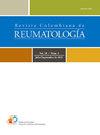Knowledge of medications and understanding of Mexican patients regarding the non-medical switch from originator to its biosimilar in inflammatory arthritis
Q3 Health Professions
引用次数: 0
Abstract
Introduction/Objective
Our aim was to know patient's understanding and concerns about biosimilars, switching, and non-medical switch in Mexican population.
Materials and methods
A cross-sectional social media survey via the Mexican Foundation for Rheumatic Patients (FUMERAC) was conducted from November 2020 to January 2021. Patients were eligible if they were >18 years of age with any inflammatory rheumatic condition.
Results
A total of 165 participants completed the survey. The most frequent diagnoses were Rheumatoid Arthritis, Ankylosing Spondylitis, and Psoriatic Arthritis. Disease-modifying antirheumatic drugs as monotherapy was the most common treatment. Prior or current users of biologics were reported. Most participants had never heard the term biosimilar. Some would accept the change from an originator to its biosimilar and few would take legal measure or file a complaint if a non-medical switch were to happen. Patients had concerns on treatment effectiveness, adverse effects, reason for change, treatment duration, and other patient's experience.
Conclusion
In Mexico, the concept of biosimilars is barely known. Most patients would not take any measure if they were changed from an originator to its biosimilar.
墨西哥患者对药物的了解以及对炎症性关节炎患者从原研药转用生物仿制药的非医学理解
前言/目的我们的目的是了解墨西哥人群中患者对生物仿制药、转换和非医疗转换的理解和担忧。材料和方法从2020年11月至2021年1月,通过墨西哥风湿病患者基金会(FUMERAC)进行了一项横断面社交媒体调查。如果患者年满18岁且患有任何炎症性风湿病,则符合条件。结果共有165名参与者完成了调查。最常见的诊断是类风湿关节炎、强直性脊柱炎和银屑病关节炎。改善疾病的抗风湿药作为单一疗法是最常见的治疗方法。报告了以前或现在的生物制剂使用者。大多数参与者从未听说过生物仿制药这个术语。有些人会接受从原药到生物仿制药的变化,如果发生非医疗转换,很少有人会采取法律措施或提起诉讼。患者对治疗效果、不良反应、改变原因、治疗持续时间和其他患者经历有关注。结论在墨西哥,生物仿制药的概念鲜为人知。如果将原药改为生物仿制药,大多数患者不会采取任何措施。
本文章由计算机程序翻译,如有差异,请以英文原文为准。
求助全文
约1分钟内获得全文
求助全文
来源期刊

Revista Colombiana de Reumatologia
Medicine-Rheumatology
CiteScore
0.80
自引率
0.00%
发文量
92
期刊介绍:
The Colombian Journal of Rheumatology (Revista Colombiana de Reumatología) is the official organ of the Colombian Association of Rheumatology (Asociación Colombiana de Reumatología) and the Central American, Caribbean and Andean Association of Rheumatology (Asociación Centroamericana Caribe Andina de Reumatología) - ACCA. It was created in December 1993 with the purpose of disseminating scientific information derived from primary and secondary research and presenting cases coming from the practice of Rheumatology in Latin America. Since its foundation, the Journal has been characterized by its plurality with subjects of all rheumatic and osteomuscular pathologies, in the form of original articles, historical articles, economic evaluations, and articles of reflection and education in Medicine. It covers an extensive area of topics ranging from the broad spectrum of the clinical aspects of rheumatology and related areas in autoimmunity (both in pediatric and adult pathologies), to aspects of basic sciences. It is an academic tool for the different members of the academic and scientific community at their different levels of training, from undergraduate to post-doctoral degrees, managing to integrate all actors inter and trans disciplinarily. It is intended for rheumatologists, general internists, specialists in related areas, and general practitioners in the country and abroad. It has become an important space in the work of all rheumatologists from Central and South America.
 求助内容:
求助内容: 应助结果提醒方式:
应助结果提醒方式:


